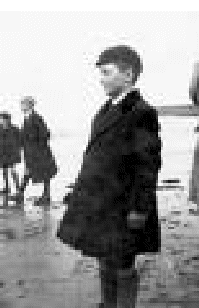Roald Dahl and
The British Spy Ring
In Wartime Washington
Jennet Conant
Simon Prebble, Reader
(HighBridge Audio)
In The Irregulars, we learn that Roald Dahl was not only a writer, but, during WWII, a spy ... spying neither on the Germans, nor on the Japanese, but on the supposed allies, the Americans. The English sent operatives into the U. S. to ensure continuing financial and military support by getting their "Baker Street Irregulars" --- Dahl, Ian Fleming, and Noel Coward among others --- to befriend the likes of Eleanor Roosevelt, Henry Wallace, and Clare Booth Luce. In covert operations, the "Irregulars" were to find out what was going on at the White House, in the Democratic and Republican parties, and all about the isolationists who were seen as enemies of England.
Conant has chosen to focus on the period after Dahl arrived in early 1942, when the U. S. was already in Britain's court. Dahl was the perfect choice for a friendly spy. He was droll and handsome, managed to sleep with important ladies, including Clare Booth Luce (congresswoman and wife of the owner of "Time" and "Life" and "Fortune.") Dahl did a bang-up good job, not only with the women, but with his friendships --- the near-radical Vice-President Henry Wallace, important journalists like Walter Lippmann, Walter Winchell, and Drew Pearson, and the rich, influential and very nosy Texas editor Charles Marsh. He was even invited to Hyde Park, spent times alone with Franklin Roosevelt ... immediately sending information right on to London. According to Conant, FDR knew that with Dahl he was communicating with Churchill through a back door. He valued the informality of it.
 The story is read admirably by Prebble. Unfortunately, it might only be of interest to WWII fans (like me) ... or lovers of Dahl's writings. The most exciting parts are not the stories of the usual brawls of politics (back-stabbing, under the table deals, FDR's tricks) but Dahl crash-landing his airplane in the North African desert --- he ran out of gas --- or his being forced to continue his dalliance with Clare Booth Luce. He wanted out of bed; his British spy boss William Stephenson made him stay in because he wanted more pillow-talk to feed London.
The story is read admirably by Prebble. Unfortunately, it might only be of interest to WWII fans (like me) ... or lovers of Dahl's writings. The most exciting parts are not the stories of the usual brawls of politics (back-stabbing, under the table deals, FDR's tricks) but Dahl crash-landing his airplane in the North African desert --- he ran out of gas --- or his being forced to continue his dalliance with Clare Booth Luce. He wanted out of bed; his British spy boss William Stephenson made him stay in because he wanted more pillow-talk to feed London.